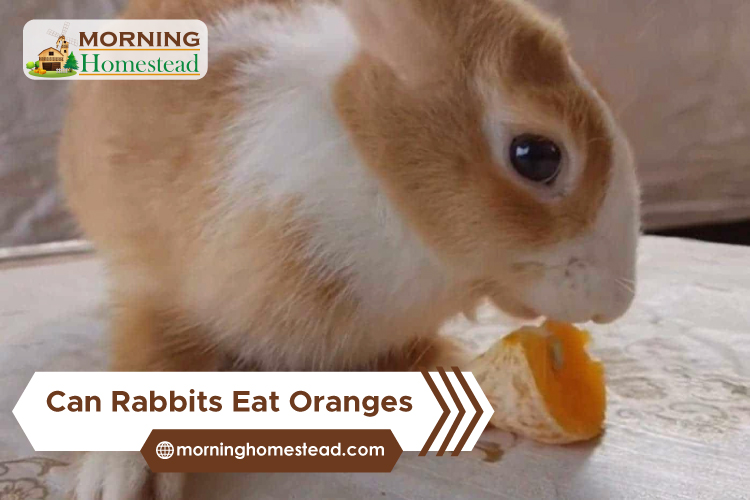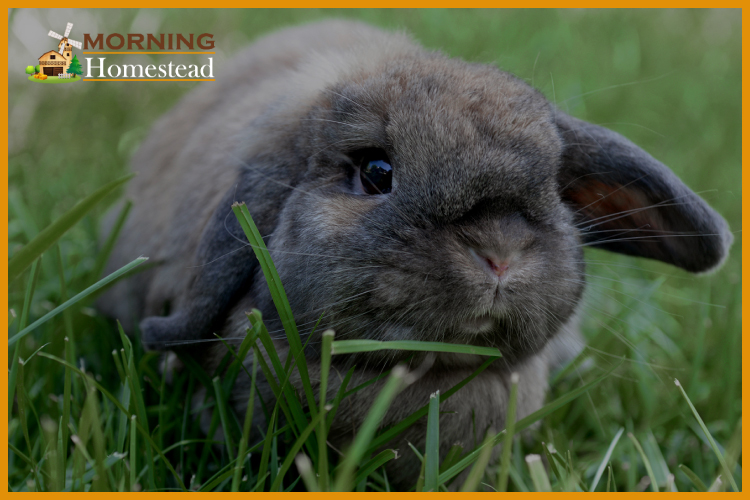Last Updated on May 8, 2023 by Georgie Smith
Oranges are one of the most favored fruits among people because of the remarkable health benefits they provide. However, is it safe for a rabbit to eat oranges? Oranges are very healthy in a natural way. They have no bad cholesterol and are low in calories. Both of these are important for humans and animals.
Pectin is the high-fiber content found in large quantities in oranges and other fruits. Pectin is a strong stool softener and laxative. Everyone should understand that high fiber is what the body needs to help produce healthy stools.
Consistent, healthy stools are what eliminate food content inside the colon quickly. The best thing about this is the body has less exposure to toxins if left in the colon for too long. That amount of time can lead to serious diseases.
Pectin also stops cholesterol from reabsorbing which results in decreased cholesterol levels. Oranges are most known for their high levels of vitamin C. The C vitamin acts as an antioxidant and minimizes the chance of acquiring infectious and harmful illnesses.
Vitamin A aids in maintaining great vision. Additionally, you will find healthy doses of minerals such as potassium. The combination regulates heart rate and blood pressure while calcium leads to strengthening bones.
Are Oranges Okay For a Rabbit to Eat?
Rabbits typically love oranges. If you have not offered the fruit to your rabbit, start with small pieces. The bunny will more than likely fool around with the orange bit for a while before braving and taking a bite. Feeding the bunny oranges is fine, but, as with other fruits, do so in moderation.
There is no special rule for what the best amount or how often your rabbit can eat oranges. However, to be on the safe side, make it a quarter size of the fruit provided for two or three days. After that feeding, only do so a week to ten days.
Oranges have nutritional benefits for humans; this is no secret. However, they offer the same benefits for pet rabbits. Orange provides a healthy dose of fiber, water, vitamins, and minerals. All good stuff for both, humans and rabbits.
One beneficial advantage is oranges defeat and prevents the formation of hairballs that gather in a rabbit’s stomach. [1]
Are Oranges Harmful to Rabbits?
There are a few disadvantages to feeding your rabbit oranges. One is there is never a time when it is okay to feed fruits, especially oranges, as a regular part of her meals. The nutritional value of oranges may be more than what a rabbit’s small digestive system can handle. That is particularly true if the rabbit eats it in large quantities or too many times close together.
If you feed oranges to your bunny too often, the chances of it developing stomach damage are possible. One other painful repercussion of high acid levels is ulcers that will form in a rabbit’s mouth. In addition to ulcers, the sugar content in oranges tends to make a rabbit overly excited.
That type of behavior leads to the small animal becoming addicted to the sugar content and may stop eating her real, regular food.
One other cautionary detail to know is to be sure you remove the seeds while feeding your rabbit. The reason why is that seeds In oranges can cause blockage in a rabbit’s respiratory tract and can lead to serious, life-threatening ordeals.
Peels or Pulp and Your Rabbit
As you will rarely find people that enjoy eating oranges peels, rabbits devour them. A surprising note is that the skins are tasty treat rabbits prefer over pulp. The good news is, the nutrients in orange peelings are a much healthier option over pulp.
The best suitable amount of orange skins to feed a rabbit is one-fourth at a time which also contains the sufficient nutritional value the rabbit needs. The peels from oranges have four times more fiber than orange pulp. It also has more substantial sums of tangerine, flavonoids, nobiletin, and anti-inflammation elements.
Studies conducted show that orange peelings contain nutrients that are overall better for lowing bad cholesterol compared to some drugs. One research shows water when replaced with orange juice for an eight weeks time frame.
The results were that the level of cholesterol in the rabbit decreased by 44 percent. No other pertinent notes were noted covering the improvement of the all-around care of the rabbit. However, do not try this on your rabbit simply because there may be adverse effects yet unexplored.
FAQs:
Q: Are all types of oranges safe?
A: Yes, but the concept remains, to feed in moderation and to monitor your rabbit’s behavior.
Q: Should I give my rabbit vitamin C?
A: Rabbit chemistry produces its own vitamin C. There is no reason for your bunny to rely on oranges for a large portion of nutrients. [2]
Conclusion
To conclude, yes, rabbits can eat oranges in moderation. However, it is a good idea that you limit your rabbit’s intake to a few bites. Due to the nutritional value of bunnies when compared to other veggies and fruits; oranges should never be a concurring staple of a rabbit’s diet.
Instead, offer her oranges occasionally as a treat instead of a replacement for a meal. Actually, using fruits as a motivational treat in training is a great idea. You will find that most bunnies love sweets and welcome it as their sugary treat. Be warned, never offer her too much to prevent her from wanting it over her regular foods.
As always MorningHomestead remains a leader in supplying a product guide on items you use around your home, in the garden, and even farm life. If you need information on a product, let us know, and we will be thrilled to deliver precisely what you need.
Other sites offer guides but not one that provides more truth than what we do as a team. We stand at a vantage point to deliver oven-fresh and first-class articles for our readers. You can count on us because we always go above and beyond to surpass your expectation.
We thank you sincerely that you spent part of your valuable time reading this post. We love to hear from you, so do not forget to drop your comments below to get a conversation started. There is love in sharing, so share this post across all social networks for others to benefit too. Thank you!


![Best Brush For Rabbits: Rabbit Grooming Brush Reviews And Guide [2023] Brush-For-Rabbits](https://morninghomestead.com/wp-content/uploads/2020/07/Brush-For-Rabbits-150x150.jpg)


